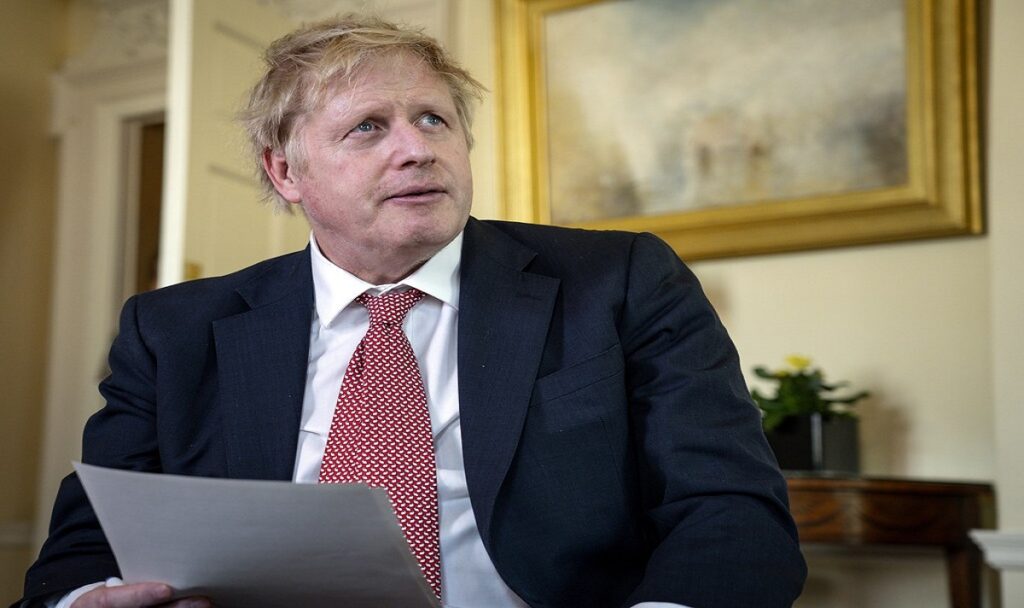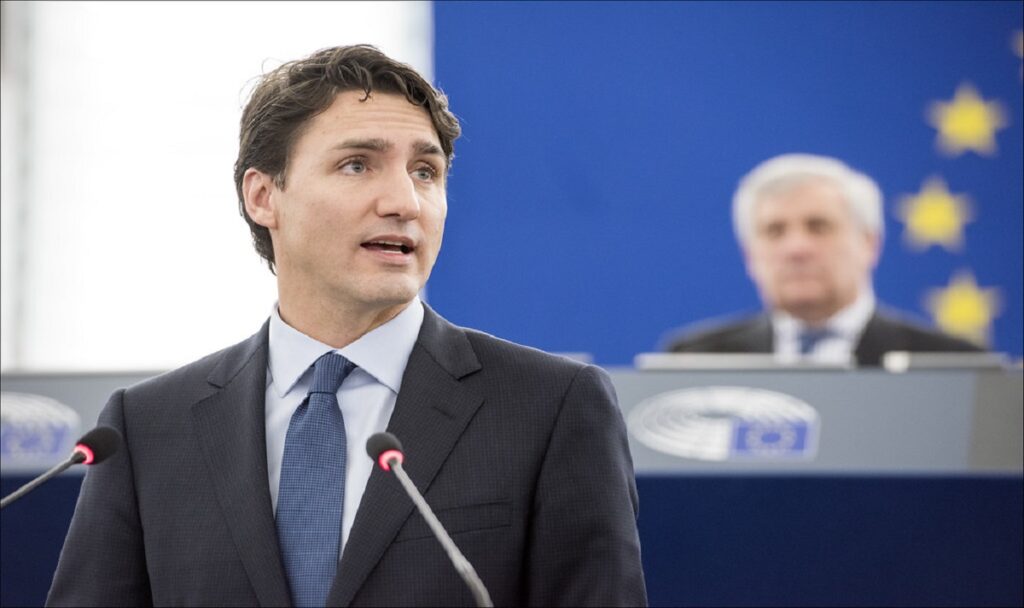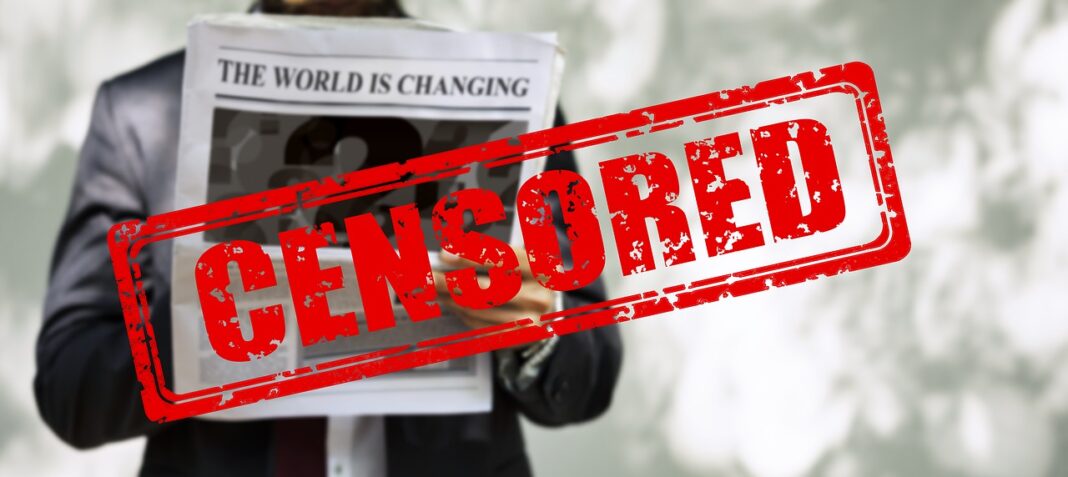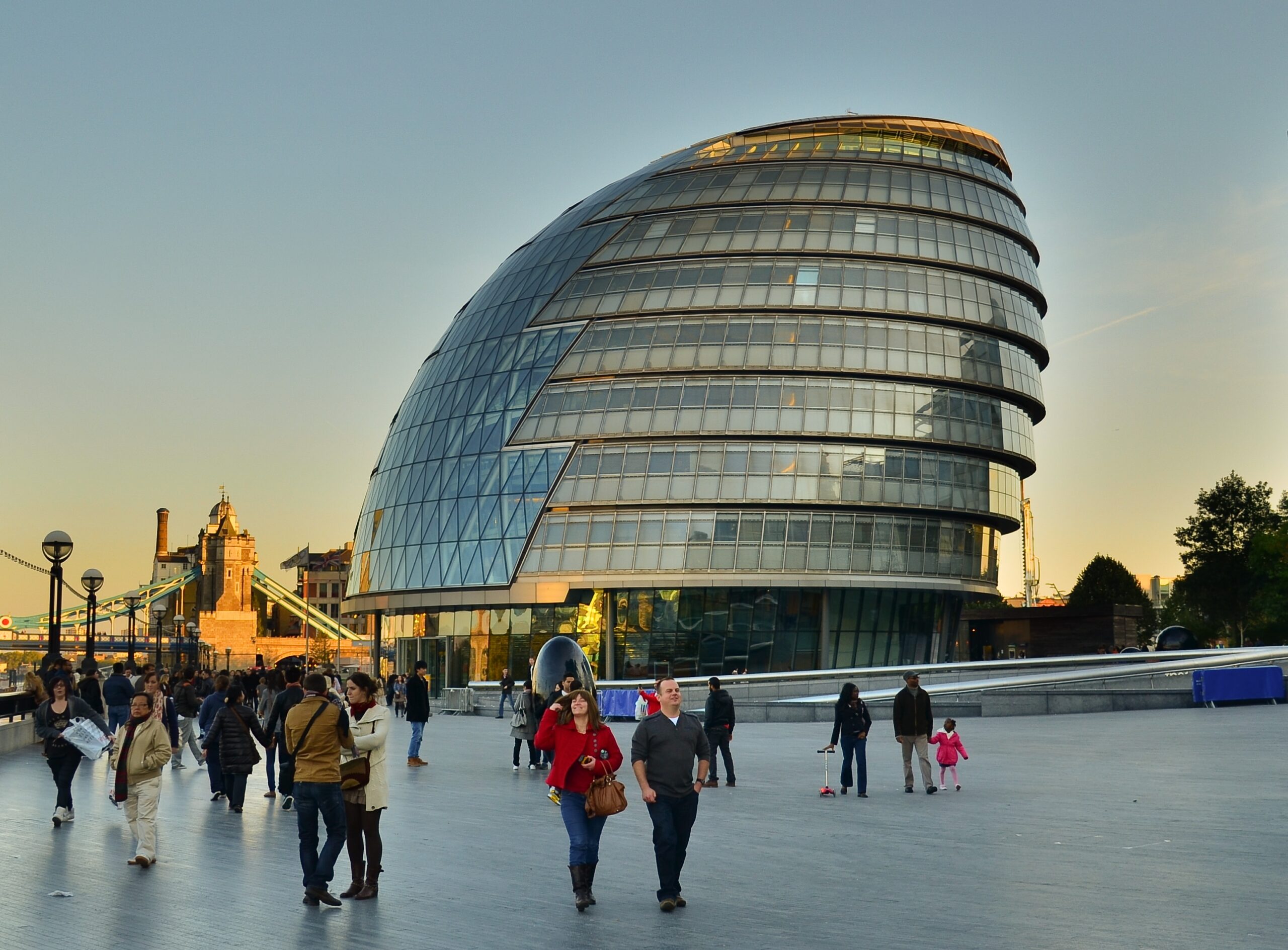18 December 2021 | OPINION
Recent events might suggest that we are in an environment in which state control over media and the press is growing increasingly normalised. The Mail on Sunday‘s leader last weekend was notable. Boris Johnson was blasting the BBC for its coverage of PartyGate and not, in his view, promoting the need for booster jabs, which he described as their primary duty.

However, it is not within the prerogative of the Prime Minister or anyone within the executive to determine what the BBC’s duty is. The corporation receives public funding (and these considerations may be of some worth to that debate, but that is beyond the scope of this piece) and general oversight through DDCMS, but the Government provides no specific editorial day-to-day oversight of the corporation. There is no indication of legislation following this critique, so it is perhaps unreasonable to expect this Government to suddenly turn the BBC into a state broadcaster in the guise of China Central Television, though it may indeed be worth making sure we do not move in that direction. The insinuation that the Prime Minister might think he can define the corporation’s duty and henceforth what it reports on and how should start the early warning signs ringing.
Elsewhere, liberal democracies are a little further in this direction. The New Zealand Government has announced a $55 million fund to “support New Zealand’s media to continue to produce stories that keep New Zealanders informed and engaged, and support a healthy democracy”. The Ministry of Culture and Heritage wants to support public interest journalism. Cynics will note that the Government itself will have a monopoly on defining what constitutes public interest.

In most democracies, you will see some form of registrar for legislator funding. This is because, even subconsciously, receiving money from an organisation could impact parliamentary interventions and voting. The public thus wants to know who is funding their representatives. There is no reason to think media organisations will not behave in a similar way. It is not a stretch of the imagination to fear that this funding could reduce the chances of critical articles on the conduct of the New Zealand Government, or the Labour and Green parties, who form the governing coalition, appearing in these publications.
In New Zealand, a story critising the government may put funding at risk if the government opts to define it as against the public interest, as shown by reports that theatres are self-censoring and thinking about future funding when commissioning pieces, which will cause the spectre of self-censorship to hover increasingly over the media. More and more editorial decisions could be made based on funding, so increasing government control over funding is not a banal measure.
Whilst the Ardern Government has gone further than Johnson has, this comes at a time of increasing moves that result in a less free press and increasing self-censorship. A free press is vital – almost a lifeblood to democracy – and democracy comes in waves. We may be in a wave of decreasing democracy and press freedom. To give a brief snapshot, journalists in Pakistan have reported on increased censorship, both self-instigated and decreed by the state.
In 2019, 36,000 people were investigated in Turkey for insulting Recep Tayyip Erdogan, the Turkish President, online. This year, Hungarian journalists have reported being blocked from speaking to healthcare workers, with the Government being accused of covering up negative news about the COVID-19 outbreak in the country.
Now, many would argue that Turkey and Hungary have been moving in a more authoritarian direction for some time, but I could explore further instances in recent years throughout Europe and North America, such as Canada’s C10 bill, designed to influence content and its funding by transnational streaming platforms. There’s also the Council of Europe reporting that 40% of journalists had been threatened with physical violence by public authorities, but this all points to an environment where government control over content and information is becoming increasingly common.

This could result in it being normalised, which would be a death knell to a genuinely free press wherever it occurs. We may not be close to the doomsday scenario yet, but perhaps this is something to keep note of at the ballot box. Governments ought to play no part in editorial decisions and should not fund any media organisation. That would allow the media to remain truly liberal-democratic, in which the only thing influencing whether specific content appears is whether it is likely to sell and readers agree with it – not because the Government has mandated that it must or made funding dependent on it.
If this situation does escalate, there are solutions that publications and voters in any democratic state can take to prevent the trend spiralling out of control. For the outlets themselves, they could diversity their brand to attract new revenue streams or more subscriptions, such as Times Radio or the now-defunct Guardian Soulmates. This could help ensure they never get into a position where they need to rely on government funding or bailouts to survive. But there are also things readers could do, such as making private donations, or failing that, opposing any legislation that seeks to put these publications under government subservience, not voting for candidates who show a willingness to do that, or writing to your representatives so they do not vote for any such legislation.
Of course, you may still have a ‘tyranny of the majority’ situation, in which a majority of legislators, perhaps egged on by voters themselves, want to give themselves editorial control or influence over an independent publication. To prevent that, the final suggestion is codifying laws that demand a free press into a constution, so a simple majority cannot remove that freedom. That would keep the press free and under the liberal-democratic model of journalism, leading to readers having an option of diverse views to encourage free thinking and debate and not simply what the Government has paid for or permitted.
If we are at the beginning of a trend that sees this type of press cancelled, then these solutions could arrest that slide.


























There is much to be concerned about in respect of restrictions on press freedoms. However, there is equally much to be concerned about in respect of the press restricting freedoms. The Euro News satellite television channel is funded by the European Commission, this is akin to the BBC being funded, not by the state vis the licence fee, but directly by Number 10 itself. The BBC have long given up on any pretence of impartiality and are obviously and actively anti-Conservative, it is little wonder the UK’s PM is not best pleased with them. The Canadian situation is equally concerning, the government have taken active steps to censor and restrict Rebel News, however, this has been actively supported by the majority of the press. The accusations in Hungary that the government is trying to restrict press reporting of Covid stories are mostly just accusations, which come from a politized section of the press who would make these accusations regardless of their veracity, being so opposed to the governing party in Budapest and who are often directly or indirectly funded by foreign political organisations. The press, the social media giants and television broadcasters are often more to blame when it comes to the restrictions on freedoms than anyone else. In short this a two way street, but one in which the press and executives throughout the world travel down in the same direction arm in arm. They are too often fellow travellers and whilst in democracies governments come and go, the press continue.